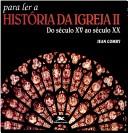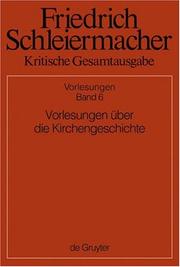| Listing 1 - 10 of 16 | << page >> |
Sort by
|
Book
Year: 1900 Publisher: Bruxelles imprimerie A. Lefèvre
Abstract | Keywords | Export | Availability | Bookmark
 Loading...
Loading...Choose an application
- Reference Manager
- EndNote
- RefWorks (Direct export to RefWorks)
Book
Year: 1778 Publisher: Venetiis : typis Dominici de Mazo,
Abstract | Keywords | Export | Availability | Bookmark
 Loading...
Loading...Choose an application
- Reference Manager
- EndNote
- RefWorks (Direct export to RefWorks)
Book
Year: 1946 Publisher: Louvain Bibliotheca Universitatis
Abstract | Keywords | Export | Availability | Bookmark
 Loading...
Loading...Choose an application
- Reference Manager
- EndNote
- RefWorks (Direct export to RefWorks)
Ecriture Sainte --- Godsdienst --- Heilige Schrift --- Egypt --- 227.1 (XVI 27) 07
Book
ISBN: 9780198790518 0198790511 0191834483 Year: 2016 Publisher: Oxford Oxford Univ Press
Abstract | Keywords | Export | Availability | Bookmark
 Loading...
Loading...Choose an application
- Reference Manager
- EndNote
- RefWorks (Direct export to RefWorks)
In early medieval Europe, monasticism constituted a significant force in society because the prayers of the religious on behalf of others featured as powerful currency. The study of this phenomenon is at once full of potential and peril, rightly drawing attention to the wider social involvement of an otherwise exclusive group, but also describing a religious community in terms of its service provision. Previous scholarship has focused on the supply and demand of prayer within the medieval economy of power, patronage, and gift exchange. Intercessory Prayer and the Monastic Ideal in the Time of the Carolingian Reforms is the first volume to explain how this transactional dimension of prayer factored into monastic spirituality. Renie S. Choy uncovers the relationship between the intercessory function of monasteries and the ascetic concern for moral conversion in the minds of prominent religious leaders active between c. 750-820. Through sustained analysis of the devotional thought of Benedict of Aniane and contemporaneous religious reformers during the reigns of Charlemagne and Louis the Pious, Choy examines key topics in the study of Carolingian monasticism: liturgical organization and the intercessory performances of the Mass and the Divine Office, monastic theology, and relationships of prayer within monastic communities and with the world outside. Arguing that monastic leaders showed new interest on the intersection between the interiority of prayer and the functional world of social relationships, this study reveals the ascetic ideal undergirding the provision of intercessory prayer by monasteries.
27 "07/08" --- 27 "07/08" Histoire de l'Eglise--?"07/08" --- 27 "07/08" Kerkgeschiedenis--?"07/08" --- Histoire de l'Eglise--?"07/08" --- Kerkgeschiedenis--?"07/08" --- Intercessory prayer --- Monasticism and religious orders --- Carolingians --- Christianity. --- History --- Religion. --- Bittgebet. --- Communio. --- Eucharistisches Hochgebet. --- Intercessory prayer. --- Karolingische Reform. --- Mönchtum.
Book
ISBN: 9780198797586 0198797583 0191839159 0192518275 Year: 2017 Publisher: New York Oxford University Press
Abstract | Keywords | Export | Availability | Bookmark
 Loading...
Loading...Choose an application
- Reference Manager
- EndNote
- RefWorks (Direct export to RefWorks)
Heresy and Dissent in the Carolingian Empire' recounts the history of an exceptional ninth-century religious outlaw, Gottschalk of Orbais. Frankish Christianity required obedience to ecclesiastical superiors, voluntary participation in reform, and the belief that salvation was possible for all baptized believers. Yet Gottschalk-a mere priest-developed a controversial, Augustinian-based theology of predestination, claiming that only divine election through grace enabled eternal life. Gottschalk preached to Christians within the Frankish empire-including bishops-and non-Christians beyond its borders, scandalously demanding they confess his doctrine or be revealed as wicked reprobates. Even after his condemnations for heresy in the late 840s, Gottschalk continued his activities from prison thanks to monks who smuggled his pamphlets to a subterranean community of supporters. This study reconstructs the career of the Carolingian Empire's foremost religious dissenter in order to imagine that empire from the perspective of someone who worked to subvert its most fundamental beliefs.0Examining the surviving evidence (including his own writings), Matthew Gillis analyzes Gottschalk's literary and spiritual self-representations, his modes of argument, his prophetic claims to martyrdom and miraculous powers, and his shocking defiance to bishops as strategies for influencing contemporaries in changing political circumstances. In the larger history of medieval heresy and dissent, Gottschalk's case reveals how the Carolingian Empire preserved order within the church through coercive reform. The hierarchy compelled Christians to accept correction of perceived sins and errors, while punishing as sources of spiritual corruption those rare dissenters who resisted its authority.
Predestination --- Christian heresies --- Religion and politics --- Prédestination --- Hérésies chrétiennes --- Religion et politique --- History of doctrines --- History --- Histoire des doctrines --- Histoire --- Gottschalk, --- Europe --- 27 "07/08" --- 27 "07/08" Histoire de l'Eglise--?"07/08" --- 27 "07/08" Kerkgeschiedenis--?"07/08" --- Histoire de l'Eglise--?"07/08" --- Kerkgeschiedenis--?"07/08" --- Prédestination --- Hérésies chrétiennes
Book
ISBN: 9783777220239 377722023X Year: 2020 Volume: 68 Publisher: Stuttgart Anton Hiersemann
Abstract | Keywords | Export | Availability | Bookmark
 Loading...
Loading...Choose an application
- Reference Manager
- EndNote
- RefWorks (Direct export to RefWorks)
Wie lebte und arbeitete der Priester an einer kleinen, gewöhnlichen Kirche auf dem Land in der Karolingerzeit? Wie wurden überhaupt die einfachen Gemeinden in Lateineuropa jenseits der prestigeträchtigen Bischofssitze kirchlich organisiert und betreut? Und welche Faktoren haben diese kirchliche Strukturierung des Landes vorangetrieben? Die Geschichtswissenschaft hat diese Prozesse seit dem späten 19. Jahrhundert mit dem Modell der sogenannten »Eigenkirchen« erklärt: Demnach errichteten grundbesitzende Laien solche Eigenkirchen gleichsam als Kapitalanlage, um mit ihnen regelmäßige Einkünfte zu erzielen – vor allem in Form von Zehnten und Oblationen der Gläubigen. Erst in der Gregorianischen Reform des 11. Jahrhunderts seien Eigenkirchen als Institution verurteilt und der Zugriff von Laien auf Kirchen durch das Patronat neu geregelt worden. Das Buch zeigt, wie sehr dieses Modell Vorannahmen des 19. Jahrhunderts verhaftet ist, und es schlägt ein anderes Erklärungsmodell vor: Dieses Modell nimmt Priester und ihre Gemeinden als Akteure mit eigenen Handlungsspielräumen ernst und sieht im Streben nach moralischer Besserung und nach Kontrolle von Mobilität wesentliche Faktoren der kirchlichen Strukturierung.
Kirche. --- Organisation. --- Priester. --- Fränkisches Reich. --- 254 --- 27 "07/08" --- 27 "07/08" Histoire de l'Eglise--?"07/08" --- 27 "07/08" Kerkgeschiedenis--?"07/08" --- Histoire de l'Eglise--?"07/08" --- Kerkgeschiedenis--?"07/08" --- 254 Etat et conditions des pretres:--general --- 254 Priester. Ambt:--algemeen --- Etat et conditions des pretres:--general --- Priester. Ambt:--algemeen --- Christian church history --- History of Europe --- anno 800-899 --- Priests --- Priests. --- History. --- 600-1500 --- Germany --- Europe --- Europe. --- Germany. --- Church history. --- Church history

ISBN: 2204021733 2204025224 9782204025225 9782204021739 Year: 1986 Publisher: Paris Cerf
Abstract | Keywords | Export | Availability | Bookmark
 Loading...
Loading...Choose an application
- Reference Manager
- EndNote
- RefWorks (Direct export to RefWorks)
Christian church history --- 27 <07> --- Kerkgeschiedenis--Cursussen. Instructies. Onderwijs --- Church history --- Christianity --- Ecclesiastical history --- History, Church --- History, Ecclesiastical --- History --- Church history.

ISBN: 3110191067 9783110191067 9783110191066 3110910853 Year: 2006 Volume: 6 Publisher: Berlin New York Walter de Gruyter
Abstract | Keywords | Export | Availability | Bookmark
 Loading...
Loading...Choose an application
- Reference Manager
- EndNote
- RefWorks (Direct export to RefWorks)
Eine Edition der handschriftlichen Quellen zu den Vorlesungen, die Schleiermacher zwischen 1806 und 1826 in Halle und Berlin über die Kirchengeschichte hielt.
27 <07> --- Kerkgeschiedenis--Cursussen. Instructies. Onderwijs --- Church history. --- Christianity. --- Christianity --- Religions --- Church history --- Ecclesiastical history --- History, Church --- History, Ecclesiastical --- History --- Schleiermacher, Friedrich.
Book
ISBN: 9781107196216 9781108164597 9781316647202 1108164595 1107196213 110816921X 1108174019 131664720X Year: 2018 Publisher: Cambridge : Cambridge University Press,
Abstract | Keywords | Export | Availability | Bookmark
 Loading...
Loading...Choose an application
- Reference Manager
- EndNote
- RefWorks (Direct export to RefWorks)
Following its violent conquest by Charlemagne (772-804), Saxony became both a Christian and a Carolingian region. This book sets out to re-evaluate the political integration and Christianization of Saxony and to show how the success of this transformation has important implications for how we view governance, the institutional church, and Christian communities in the early Middle Ages. A burgeoning array of Carolingian regional studies are pulled together to offer a new synthesis of the history of Saxony in the Carolingian Empire and to undercut the narrative of top-down Christianization with a more grassroots model that highlights the potential for diversity within Carolingian Christianity. This book is a comprehensive and accessible account which will provide students with a fresh view of the incorporation of Saxony into the Carolingian world.
Carolingians --- Carolingians. --- Church history --- Church history. --- Conversion --- Saxons --- Saxons. --- History. --- Christianity --- Christianity. --- 600-1500. --- Europe --- Europe. --- 27 "07/08" --- 27 "07/08" Histoire de l'Eglise--?"07/08" --- 27 "07/08" Kerkgeschiedenis--?"07/08" --- Histoire de l'Eglise--?"07/08" --- Kerkgeschiedenis--?"07/08" --- Carlovingians --- Carolinians --- Ethnology --- Germanic peoples --- Religious conversion --- Psychology, Religious --- Proselytizing --- Christianity&delete& --- History --- Conversion religieuse --- Histoire religieuse --- Christianisme --- Histoire --- Church history - 9th century --- Church history - 8th century --- Conversion - Christianity - History --- Saxons - History --- Carolingians - History --- Saxe --- Carolingiens --- Europe - Church history - 600-1500
Book
ISBN: 113700259X 9781137002594 Year: 2012 Publisher: New York (N.Y.) : Palgrave,
Abstract | Keywords | Export | Availability | Bookmark
 Loading...
Loading...Choose an application
- Reference Manager
- EndNote
- RefWorks (Direct export to RefWorks)
Church history --- Heiligtum. --- Religious architecture --- Religious architecture. --- Sacred space --- Sacred space. --- Sakralbau. --- Middle Ages. --- History. --- 600-1500. --- Fränkisches Reich. --- 27 "07/08" --- 726 "04/14" --- Holy places --- Places, Sacred --- Sacred places --- Sacred sites --- Sacred spaces --- Sites, Sacred --- Space, Sacred --- Holy, The --- Religion and geography --- Spiritual architecture --- Architecture --- Christianity --- History --- Kerkgeschiedenis--?"07/08" --- Religieuze bouwkunst. Kerkelijke bouwkunst. Sacrale architectuur--Middeleeuwen --- Middle Ages, 600-1500
| Listing 1 - 10 of 16 | << page >> |
Sort by
|

 Search
Search Feedback
Feedback About UniCat
About UniCat  Help
Help News
News